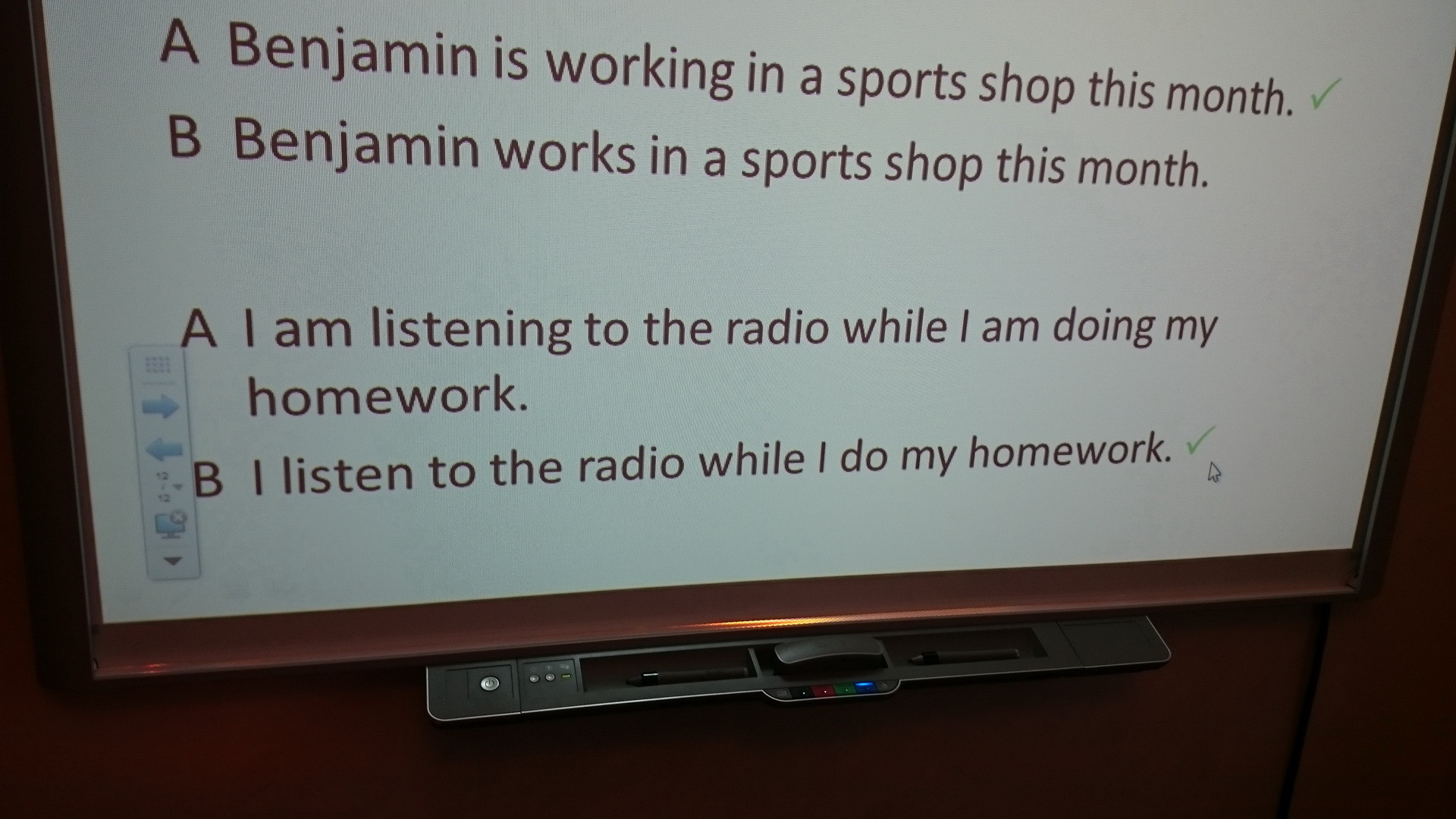I have come across the following pair of sentences on an iTool to the course book which prepares students for Cambridge Key English Test.
There must be a mistake in the second pair of sentences because option A should be correct (though option B is ticked as the correct one).
Am I right in thinking so?

